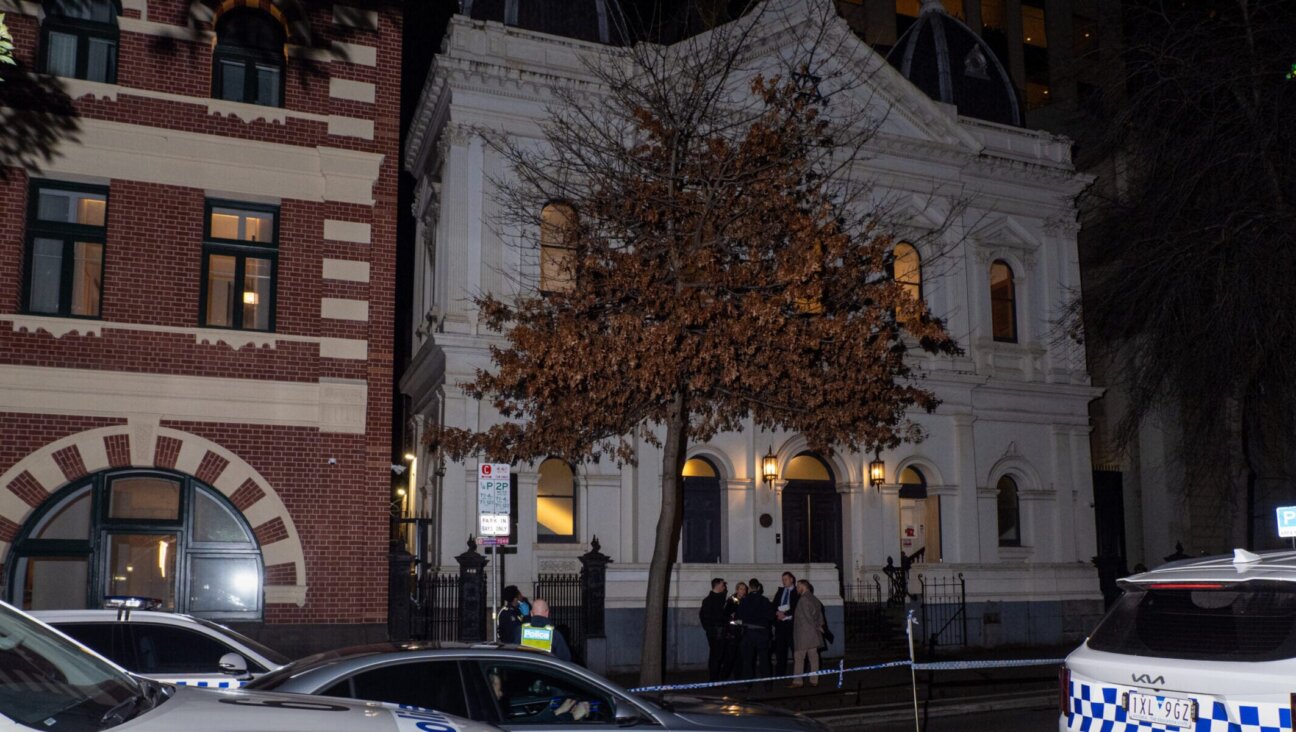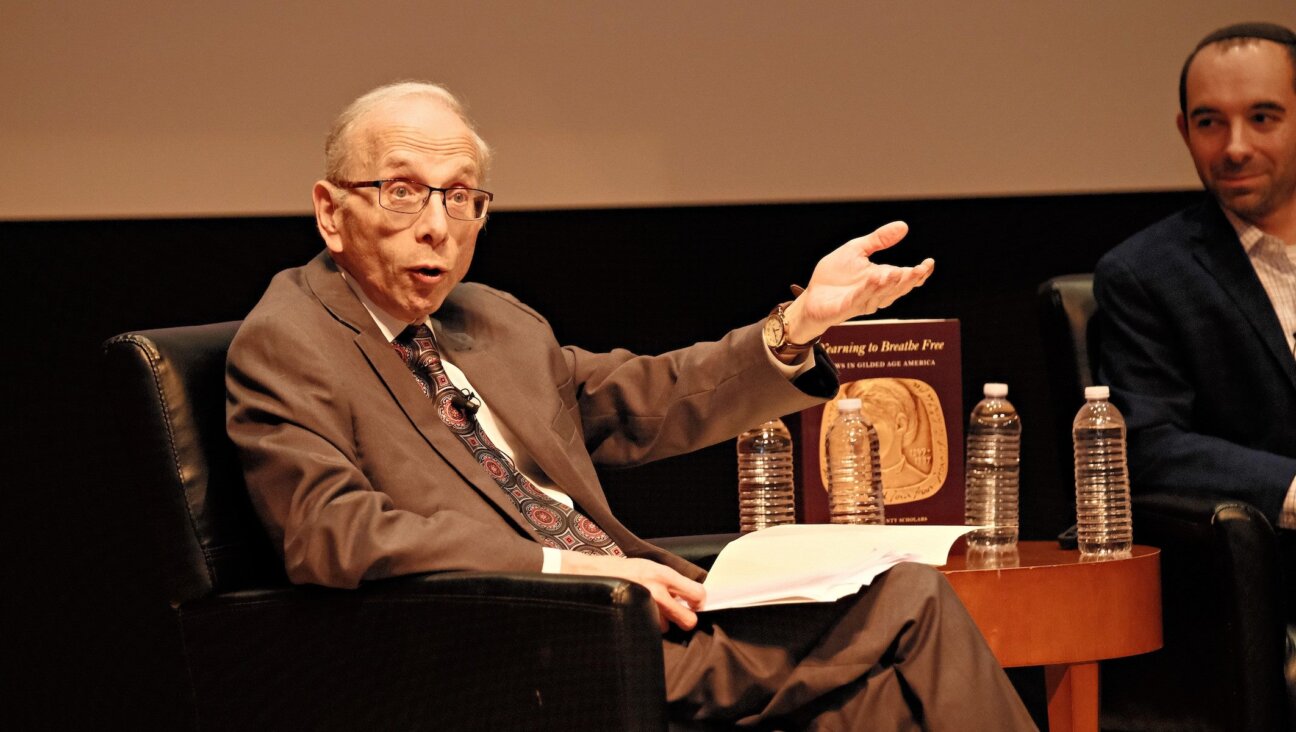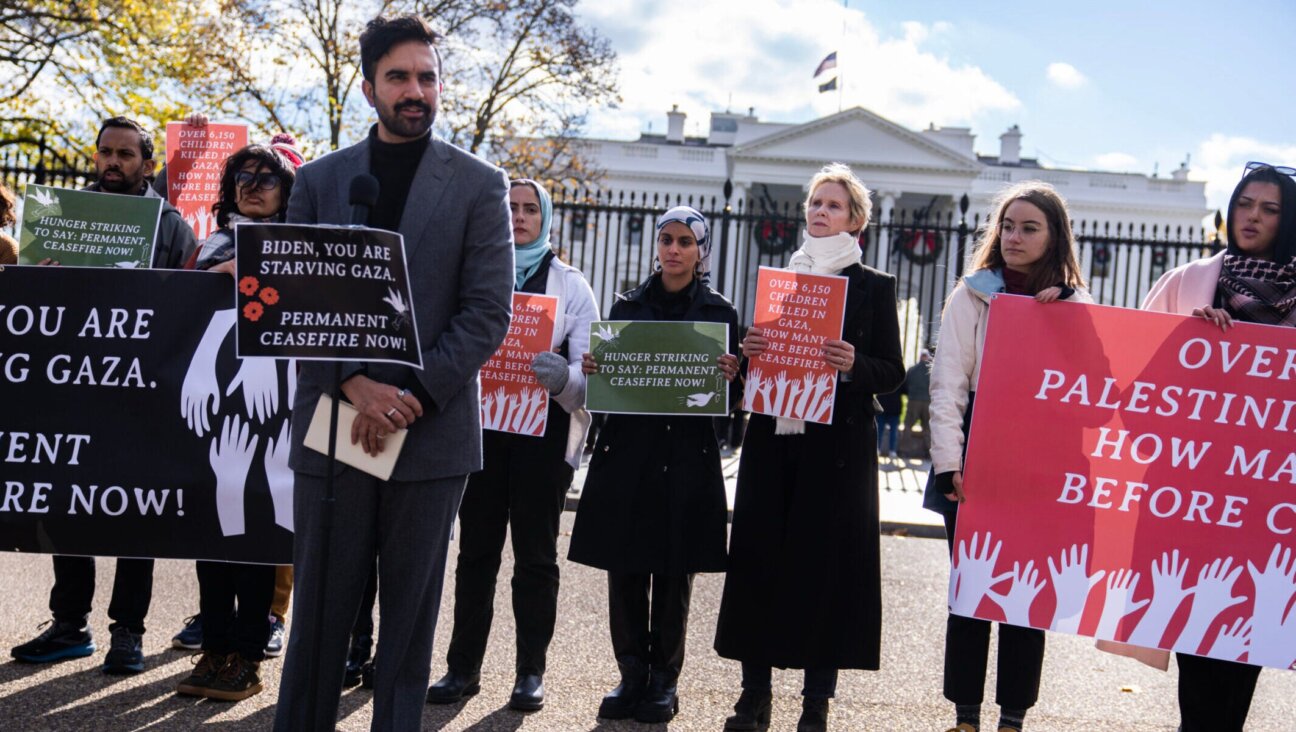All Grief Isn’t Equal
It shouldn’t make any difference, but it does, that one of last week’s suicide bombings was at a cafe on Emek Refaim Street, where I do most of my hanging out and arrange most of my meetings when I am in Jerusalem. It shouldn’t make any difference, but it does, that among the victims were David and Nava Applebaum, father and daughter, he the distinguished director of the emergency room at Sha’arei Tzedek Hospital who moved to Israel from Cleveland two decades ago, she his 20-year-old daughter who was to be married the next day. Perhaps somewhere there are truly dispassionate universalists, who shed no more tears for this human being than for that, who not only believe in their heads that we are all children of the same God but who believe that in their hearts as well; for better or for worse, I am not among them.
I did not know the Applebaums, so they are family only in a metaphoric sense. But that metaphor outweighs the other one, the one about the fraternity of the bereaved, that fraternity in which there are no borders, no second-class members, in which finally grief unites us. Within hours of the suicide bombing, an Israeli jet bombed the Gaza house of a senior Hamas leader. Mahmoud al-Zahar survived the attack; his wife was seriously wounded, along with some 20 others, and his 24-year-old son was one of three people killed. Low tech, high tech, it doesn’t much matter; the victims of the one are just as dead and just as maimed and just as traumatized as the victims of the other.
“He would appear at the site of every attack,” a colleague said of David Applebaum, “volunteer, get in the ambulances to evacuate the injured to the emergency room.” I wonder: Would he have endorsed the bombing of al-Zahar’s home? Would he, who as director of an emergency room had seen so very close the consequences of such bombings, have voted for this kind of response? I would like to doubt it. Revenge and retribution, especially when the retribution is necessarily directed not only at the perpetrator but at bystanders, too, are base motives. But then, of course, there are the security considerations: Can one sit with arms folded after the suicide bombers strike? Will that not encourage the next suicide bomber, and the next?
But the notion that if only Israel kills enough of the Hamas leadership the cycle can be interrupted, finally ended, is one that has been tested over many years, tested and found wanting. Today, there are calls throughout Israel demanding that the government endorse still greater force than it has so far allowed. But during these last weeks, Israel has pronounced a death sentence on all Hamas activists, and it has begun to carry out that sentence relentlessly. That did not deter last week’s two suicide attacks, and there is no reason to believe it will deter next week’s.
Forget for the moment about revenge: As a purely military matter, it is not possible to defeat Hamas — not from the air, not on the ground. That is what experience — and not only Israel’s — teaches, and that is what common sense indicates as well. The frustration of sitting with the most advanced equipment in the world and still being unable to defeat the determined enemy whose only weapons are explosives strapped to the body or packed in a car or airplanes transformed into missiles is a frustration we learned in Vietnam and again on September 11, 2001 — and which the Israelis have learned, or should have, again and again.
I have walked past the site of the relatively new Cafe Hillel, where David and Nava Applebaum were murdered, a hundred times and more. I have watched the hordes of young people, Israelis and often Americans studying in Israel who gather in the cafes of Emek Refaim Street in all their shining and yes, even innocent, youth.
For a time, when almost no one would venture into Jerusalem’s downtown, site of so many murderous attacks, Emek Refaim seemed to be carrying an overload. Just last year, a new restaurant opened there, the first to serve kosher meat, and it was always crowded. In the curious way in which people calculate their way around terrorism, Emek Refaim was largely insulated from the worst of it, a peaceful island in the sea of blood. Now? Two guards, one at the entrance and one just inside, and an all-out warning against an impending attack, did not suffice; the terrorism came home.
But revenge? To what purpose? Security? With what logic? Without apology, I freely confess I care more, grieve more, for the Applebaums than I do for the al-Zahars. It doesn’t much matter to me whether al-Zahar is struck dumb by the killing of his son and the severe wounding of his wife, or whether instead of grief it is his hate that has been provoked. I try to strip away such things, to close my eyes to the celebratory response in Gaza on hearing of what happened in Jerusalem, to close my ears to the boasts of the relatives of the suicide bombers, to believe that the tears of all the bereaved enter the same river, be they tears of grief or tears of wrath or some of both.
But all that matters little. What matters is how to end this useless horror. That is the hard question that Hamas does not ask and that Sharon does not answer. And that, too, is cause for tears, useless tears.
Leonard Fein’s most recent book is “Against the Dying of the Light: A Father’s Story of Love, Loss, and Hope” (Jewish Lights, 2001).























